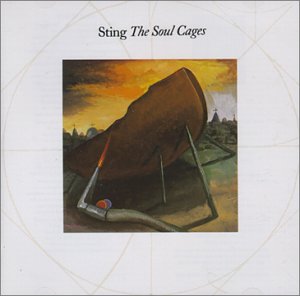
- Format: MP3

Emboldened by the enthusiastic response to the muted Nothing Like the Sun and reeling from the loss of his parents, Sting constructed The Soul Cages as a hushed mediation on mortality, loss, grief, and father/son relationships (the album is dedicated, in part, to his father; its predecessor was dedicated to his mother). Using the same basic band as Nothing Like the Sun, the album has the same supple, luxurious tone, stretching out leisurely over nine tracks, almost all of them layered mid-tempo tunes (the exception being grinding guitars of the title track). Within this setting, Sting hits a few remarkable peaks, such as the elegant waltz "Mad About You" and "All This Time," a deceptively skipping pop tune that hides a moving tribute to his father. If the entirety of The Soul Cages was as nimbly melodic and urgently emotional as these two cuts, it would have been a quiet masterpiece. Instead, it turns inward — not just lyrically, but musically — and plays as a diary entry, perhaps interesting to those willing to spend hours immersing themselves within Sting's loss, finding parallels within their own life. This may be too much effort for anyone outside of the devoted, since apart from those two singles (and perhaps "Why Should I Cry for You"), there are few entry points into The Soul Cages — and, once you get in there, it only rewards if your emotional state mirrors Sting's.